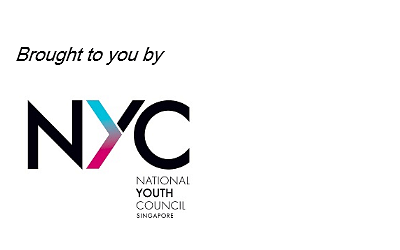If Mr Muhammad Firdaus Kordi could travel back in time, he would go back to 1989 – the year Pulau Semakau was conceptualised as Singapore's first offshore landfill.
Knowing what he knows today, Mr Firdaus would sound the alarm about the landfill's impending capacity crisis, hoping to spark earlier action on recycling and waste reduction.
But the 32-year-old, along with others in his generation, was not born when this environmental decision was made. Now, as young adults, they inherit a landfill filling faster than anticipated and a nation producing high levels of waste.
While Mr Firdaus and his peers may not have a time machine, they have a powerful alternative: their voices.
As part of the Youth Panels led by the National Youth Council (NYC) and supported by the Ministry of Culture, Community and Youth, Mr Firdaus joined almost 120 young Singaporeans aged 15 to 35 in shaping policies that tackle some of the most pressing issues for their generation.
After months of rigorous discussions, research and collaborative effort, their hard work culminated in the Youth Policy Forum on Aug 24. There, these youths presented their carefully crafted recommendations to Prime Minister and Minister for Finance Lawrence Wong, as well as Minister for Culture, Community and Youth and Second Minister for Law Edwin Tong, demonstrating that they are determined to shape Singapore's future.
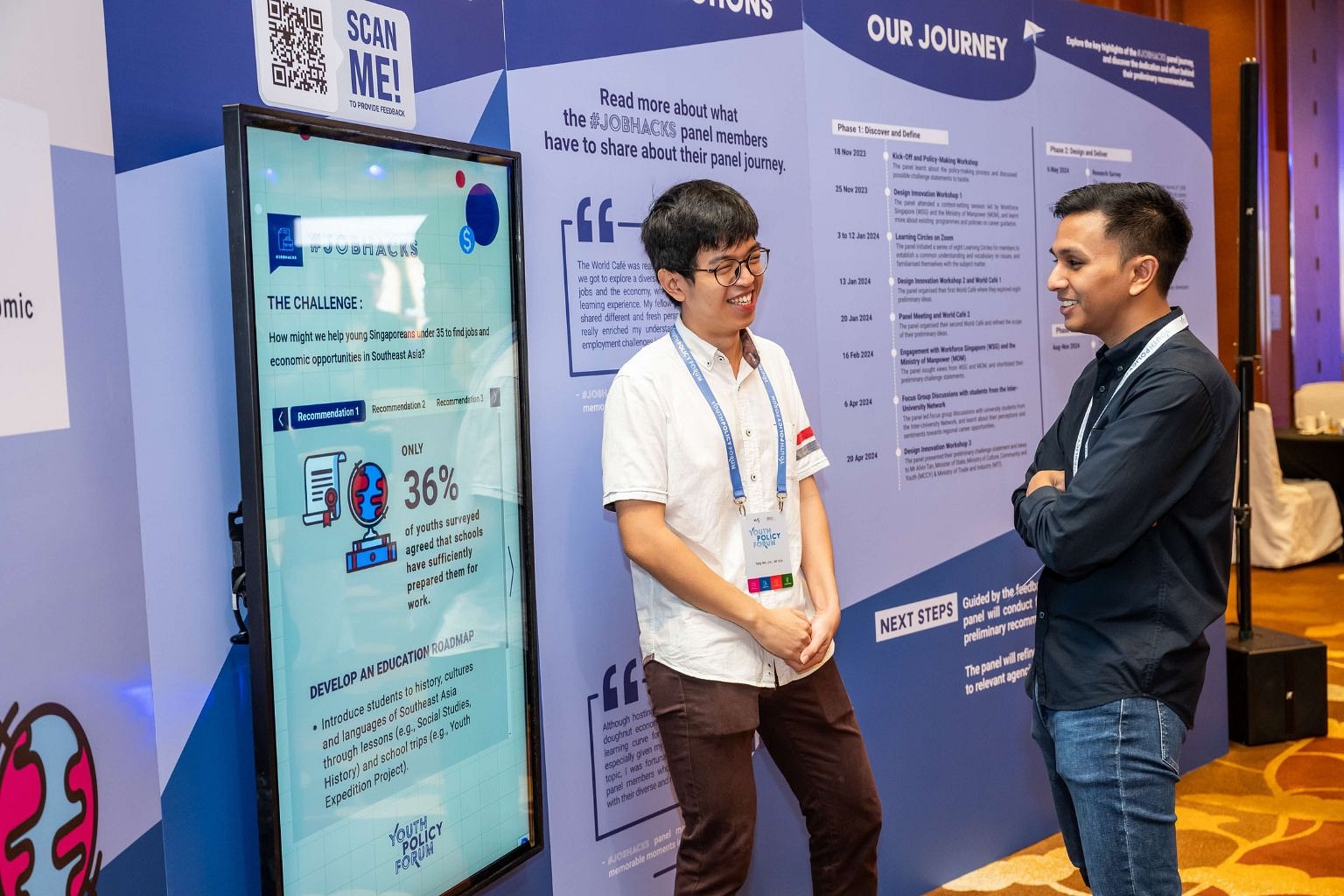
Youth in action
The forum was an important milestone for the panellists. For the past nine months, they have balanced their work and school commitments while formulating recommendations on their respective focuses.
Among the presenters was Ms Wee Su-ann, representing the #LifeHacks panel. Since November last year, her group has been meeting monthly to tackle the critical challenges that youth face, against the backdrop of rising cost of living concerns.
“I was really heartened to see that there were so many people who were invested enough to take the time to come all the way to the Youth Policy Forum to listen to us present and find out more about what the panel was working on,” she says.
“We were a little nervous about how our recommendations would be received, especially since the cost of living is such a sensitive and personal topic, but it was valuable to have the chance to interact and understand the thoughts of those at the forum regarding our ideas and to know how we can improve.”
The other three panels are #JobHacks, which focuses on employment opportunities, #TechHacks, which tackles ways to counter online harms on social media, and #GreenHacks, which looks at recycling. Each panel comprises around 30 members.
For Ms Wee and #GreenHacks panellist Mr Firdaus, two key factors played the biggest part in ensuring progress from ideas to policies: prioritising solutions considering the bigger national context that includes multiple stakeholders, and embracing diversity during the problem-solving process.
How to tackle ‘mammoth’ problems?
The main challenge faced by the #LifeHacks panel was how to effectively address the “mammoth problem” of cost of living concerns, says Ms Wee, a lawyer.
“Almost everyone is affected by the rising cost of living and people are affected in so many different ways,” says the 26-year-old.
The panel’s passion for solving diverse problems led to an abundance of ideas, but this meant that for every one good idea presented, a thousand and one others were discarded.
“Our recommendations went through many different iterations and forms before getting to where they are today,” adds Ms Wee.
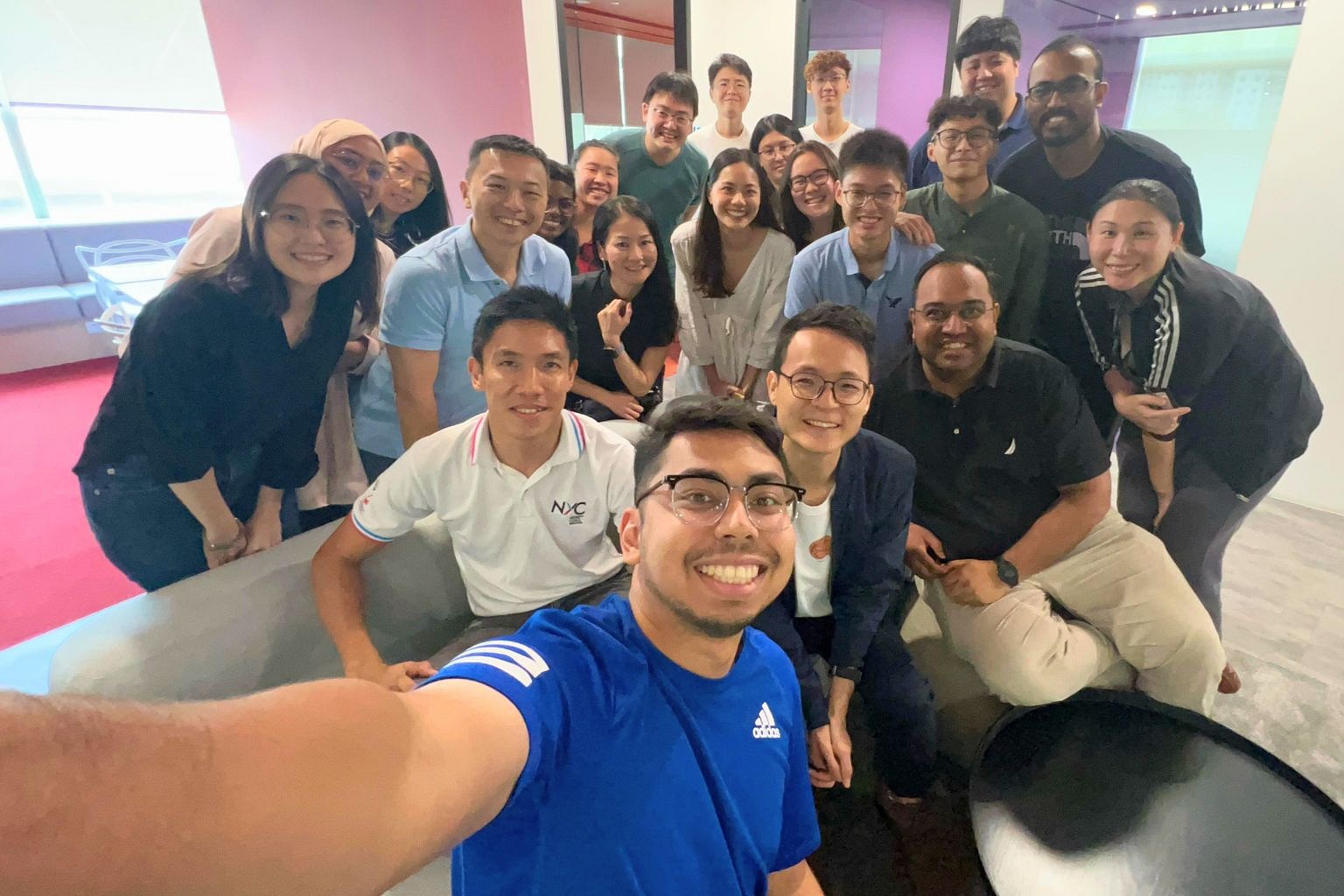
“We started by researching a wide range of issues – housing, healthcare, lower-wage workers and financial literacy. Initially, we were overwhelmed by the breadth of the issue. A turning point came when we spoke to university students and gained two key insights: youth often don’t think about financial planning until it’s urgent, and they don't know where to start,” says Ms Wee.
“We saw an opportunity to empower people with tools to reach their financial goals, which could address some of the challenges of rising costs.”
The panel’s ideas underwent several rounds of refinement after various focus group discussions and engagements with NYC and other government agencies. They considered three key questions: How does the solution allow youth to take action to reach their financial goals? How will it be implemented? And how will it be better than existing solutions?
The process was not without setbacks. One of their solutions was not well-received in the focus group discussions. “We were quite discouraged,” Ms Wee admits. “But this led to a breakthrough. During one of our workshops, we came up with a prototype for our first solution and also reworked the rejected solution into our second solution.”
Inside the policymaking process
This iterative process and ability to adapt ultimately shaped the #LifeHacks panel’s recommendations. This includes an interactive Financial Literacy Excellence (FLEX) Guide that provides personalised and consolidated recommendations on the steps young people can take to reach their financial goals.
One of the agency representatives the #LifeHacks panel consulted, Mr Kwa Chin Lum, director (Fiscal Policy) at the Ministry of Finance, says that while the Government has various programmes to enhance financial literacy among young people, the “lived experience of the youths” is the best test of the programmes’ effectiveness.
“We take the perspectives of youths seriously in policy, as they are ultimately our future. Giving them a direct voice is key because the youths bring something special to the process – that discontentment with the way things are, the optimism to change things for the better and the drive to make it happen,” says Mr Kwa.
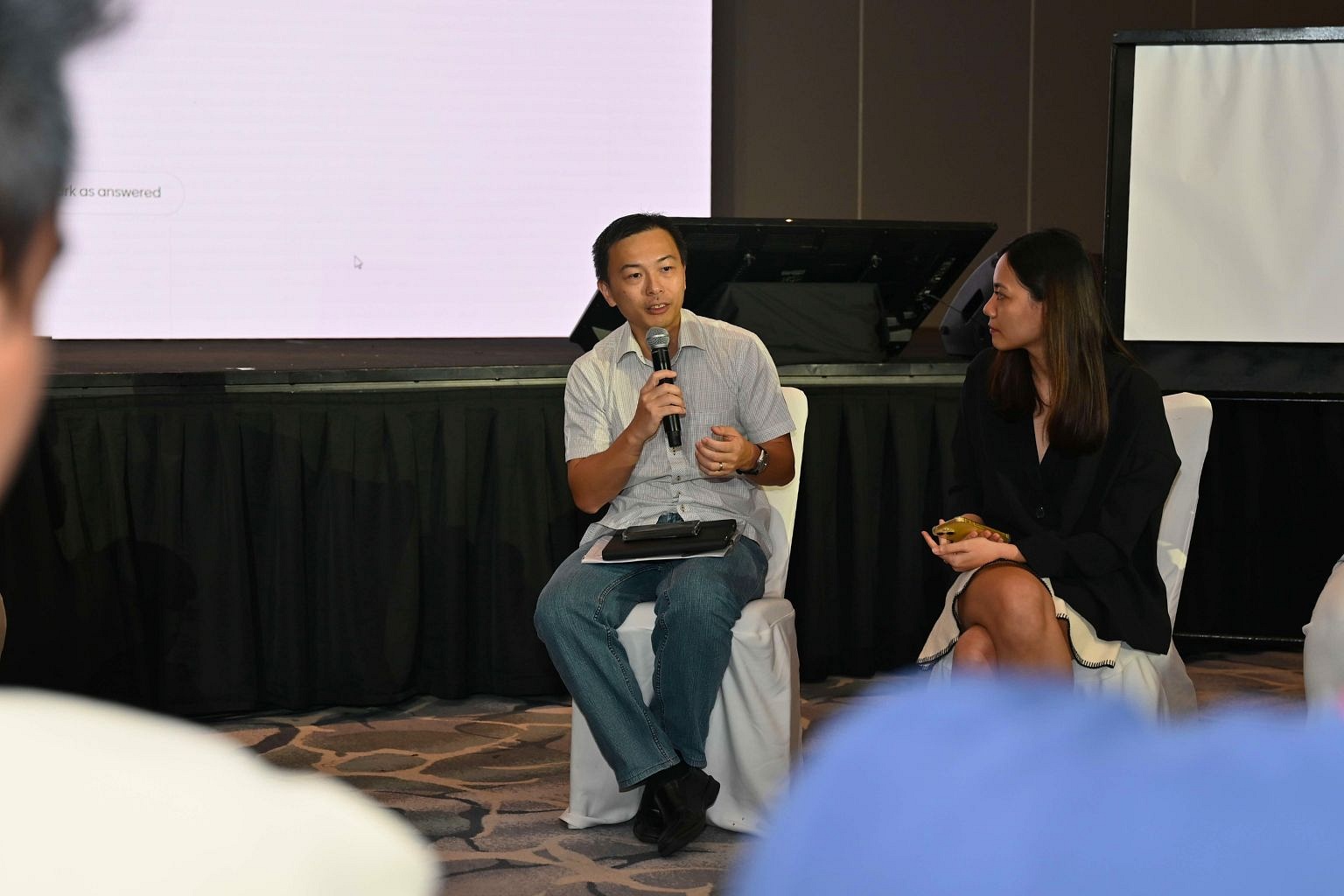
This sentiment was echoed at the forum itself. “Prime Minister Wong was interested in the panels’ recommendations. For the #LifeHacks panel, he was particularly interested in understanding how youth save and manage their money, and how to support them better,” recalls Ms Wee.
“Minister for Culture, Community and Youth and Second Minister for Law Edwin Tong expressed interest in the FLEX Guide. He shared that the guide’s value extends beyond youth, serving as a valuable resource for anyone seeking to improve their financial decision-making.”
Embracing diverse shades of green
Mr Firdaus on the #GreenHacks panel went through the same policymaking process as Ms Wee and youths from other panels. The environment and sustainability-focused panel prioritised recycling after discussions, research, and consultations with officials and industry stakeholders.
Their proposals are timely as Singapore’s household recycling rate for 2023 stagnated at its lowest point in over a decade, with just 12 per cent of all rubbish recycled.
One of the recommendations the #GreenHacks panel is suggesting is to introduce simpler labels on products to help households quickly figure out how to recycle or dispose of items properly.
The process by which the panel arrived at their recommendations was challenging, considering its diversity, according to Mr Firdaus. Participants for the four panels were chosen through an open call that attracted youth from various ages, ethnicities and expertise.
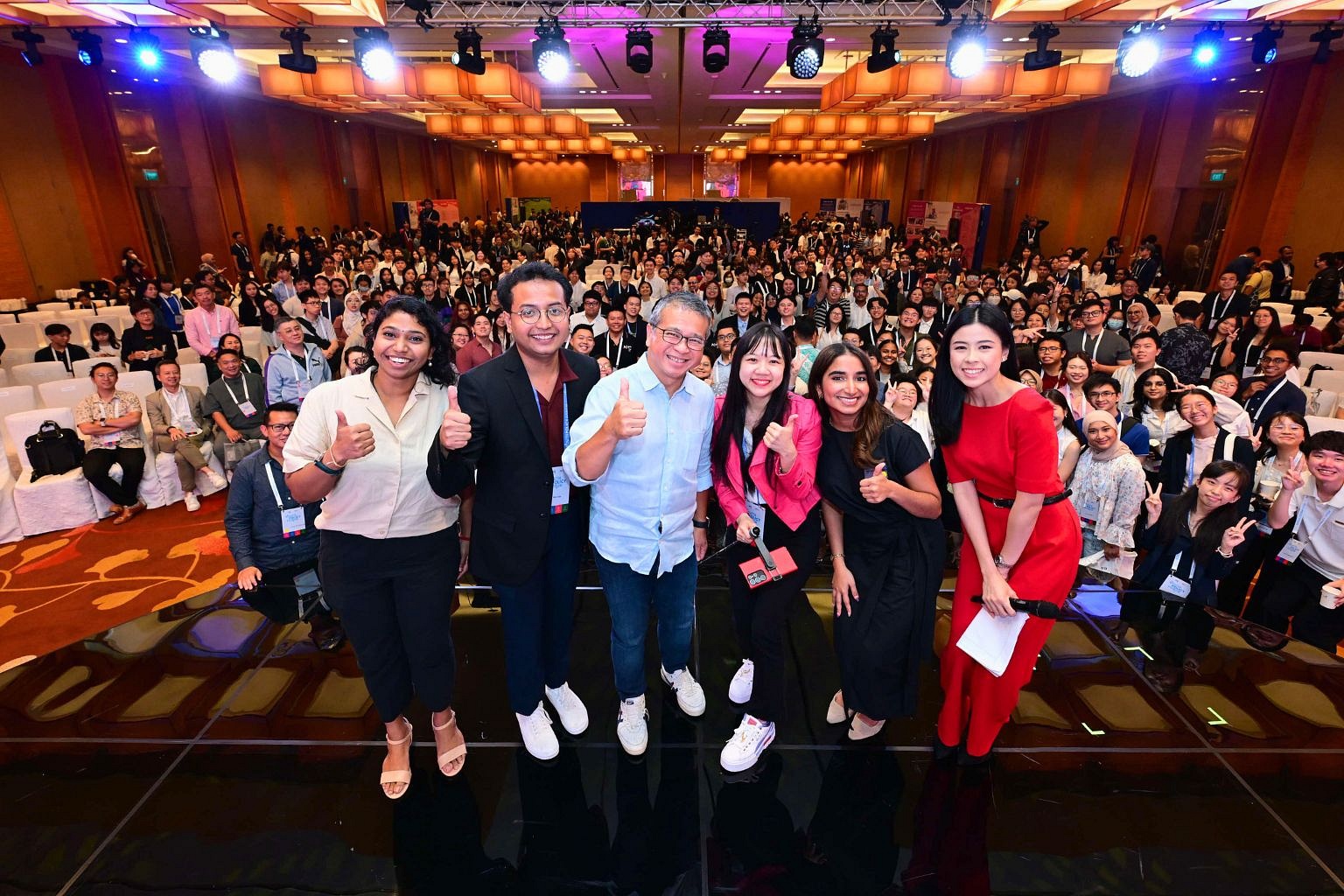
“We come from different backgrounds, experiences and viewpoints. All of us have something to bring to the table, with new ideas and unique solutions,” says the Yayasan Mendaki executive.
What helped them get from ideas to concrete policy recommendations was teamwork and embracing diversity during the problem-solving process, he adds.
“Active listening, showing respect and empathy during our interactions fostered an inclusive, and supportive environment where everyone felt valued and heard,” says Mr Firdaus.
He put these qualities into action at the Youth Policy Forum. “Upon learning that I had been nominated to present, I initially felt a sense of nervousness and pressure. However, as the weeks progressed, my confidence grew as a result of thorough preparation and collaboration with my panel members,” he says.
Looking ahead, the #GreenHacks panel have ambitious plans. Mr Firdaus says: “We plan to advance our recommendations through amendments to the Resource Sustainability Act.
“We believe that legislating these recommendations will enhance recycling rates and reduce contamination by providing clearer information on recyclable products and improving waste segregation compared to the current commingled blue recycling bins.”
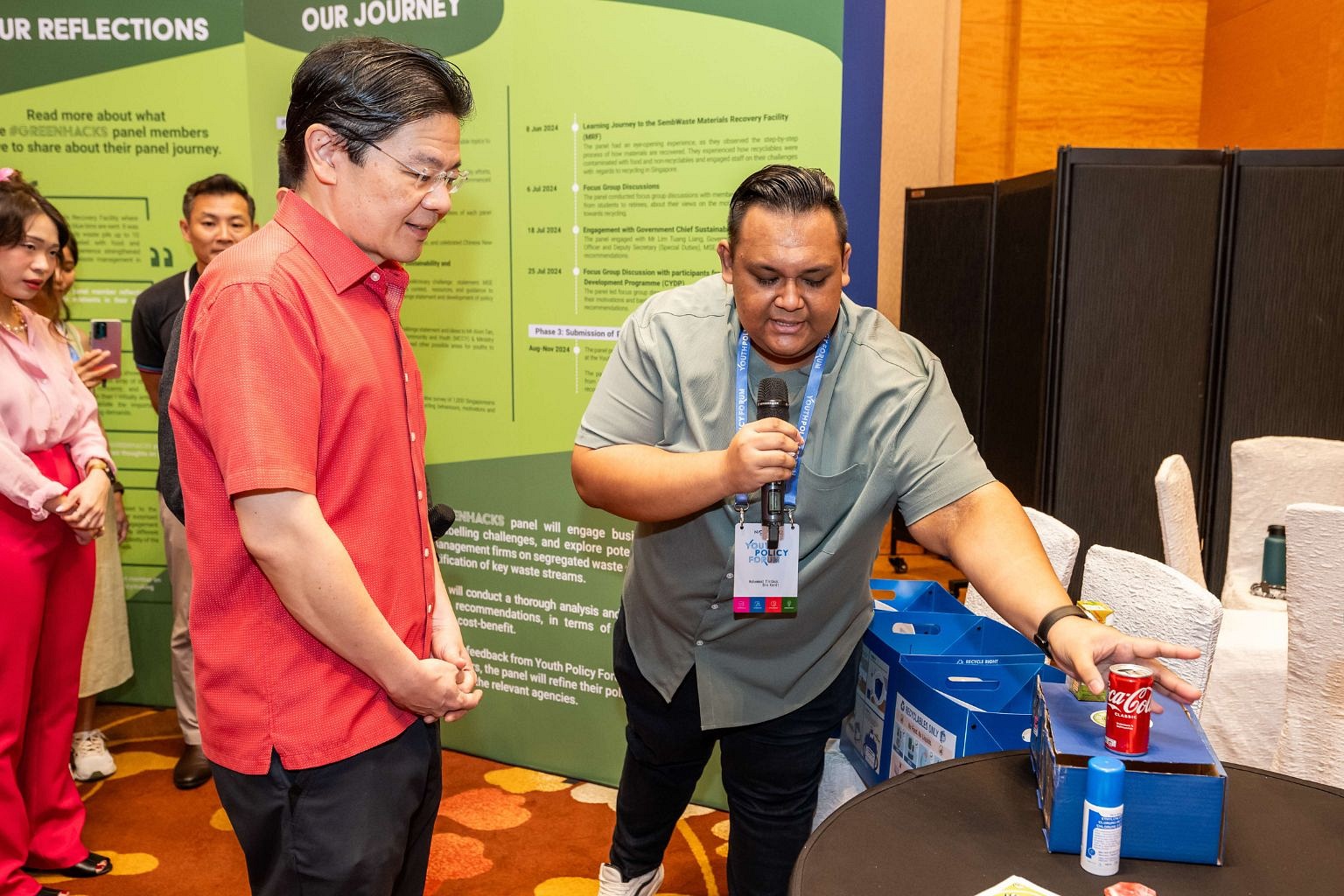
Fresh eyes, fresh perspectives
Mr Firdaus, Ms Wee and their fellow panellists will spend the next couple of months collating feedback on their recommendations from government agencies, relevant stakeholders and the public.
They will then refine their recommendations and submit them to government agencies that will assess their applicability before identifying suitable platforms to respond.
“We look forward to the feedback and improvements that we can work towards for the policy paper,” says Mr Firdaus.
The entire Youth Panel journey has enhanced his ability to engage thoughtfully with others, broadened his understanding of complex issues and inspired him to continue advocating for meaningful youth involvement in policymaking.
Ms Wee feels the same and encourages other young people to get involved.
“The youth are experiencing life and encountering many systems for the first time – they are the freshest pair of eyes to pick out blind spots in society and where society can improve, and they have the passion and energy to make meaningful change,” she says.
“Today, your voice is powerful and your participation can drive change,” says Mr Firdaus.
Come forward and add your voice to help refine the Youth Panels’ preliminary recommendations. Share your thoughts, suggestions and insights here.
